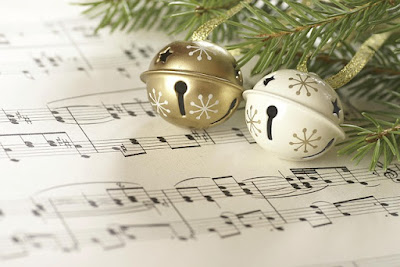Friday Fact: Creation in a Christmas Carol
Happy Christmas Eve, everyone! I was listening to some Christmas music the other day, and I noticed a few references to creation in some familiar songs. So I started to look for other examples, and that led me down the internet rabbit hole (you know the one) to Christmas Carols: Ancient and Modern. This was a compilation of Christmas songs published in 1833 by an English solicitor and antiquarian named William Sandys (1792-1874). Sandys had a special interest in Christmas and also published Christmas-tide, Its History, Festivities and Carols, With Their Music in 1852. These books, along with Dickens's Christmas Carol, contributed to the revival of interest in Christmas in the United Kingdom. The holiday had fallen out of favor after it become licentious in the 17th century and the Puritans banned it during the English Civil War. Even here in the colonies, Puritans in Massachusetts Bay Colony enacted bans of Christmas, and the holiday did not become popular until the mid-nineteenth century!
Sandys's book is notable for the first printing of "The First Nowell," a traditional carol which today is sometimes sung with this verse:
Then let us all with one accord
Sing praises to our heavenly Lord
That hath made Heaven and earth of nought
And with his blood mankind has bought.
Noel, Noel, Noel, Noel
Born is the King of Israel!
So there we have a nice affirmation of the doctrine of creation ex nihilo, creation from nothing. Sandys's book also contains a few more poems of more explicit creation theology. Here is "For Christmas Eve," a lovely (and embellished) re-telling of the entire story of Christian theology:
The Lord at first had Adam made
Out of the dust and clay;
And in his nostrils breathed life,
E'en as the Scriptures say;
And then in Eden's Paradise
He placed him to dwell,
That he within it should remain,
To dress, and keep it well.
Now let good Christians all begin
An holy life to live,
And to rejoice and merry be,
For this is Christmas Eve.
And thus within the garden he
Commanded was to stay;
And unto him in commandment
These words hte Lord did say:
The fruist that in the garden grows
To thee shall be for meat,
Except the tree in the midst thereof,
Of which thou shalt not eat.
Now let good, &c.
For in that day thou dost it touch,
Or dost it then come nigh,
And if that thou dost eat thereof,
Then thou shalt surely die.
But Adam he did take not heed
To that same only thing,
But did transgress God's holy laws,
And sore was wrapp'd in sin.
Now let good, &c.
Now mark the goodness of the Lord,
Which he to mankind bore;
His mercy soon he did extend
Lost man for to restore;
And then, for to redeem our souls
From death, and hell, and thrall,
He said his own dear Son should come
The Saviour of us all.
Now let good, &c.
Which promise now is brought to pass,
Christians believe it well,
And by the coming of God's Son
We are redeem'd from Hell.
And if we truly do believe,
And do the thing that's right,
Then by his merits we at last
Shall live in Heaven bright.
Now let good, &c.
Now, for the benefits that we
Enjoy from Heaven above,
Let us renounce all wickedness,
And live in perfect love.
Then shall we do Christ's own command,
Even his written word,
And when we die, in Heaven we shall
Enjoy our living Lord.
Now let good, &c.
And now the tide is nigh at hand
In which our Saviour came;
Let us rejoice and merry be
In keeping of the same.
Let's feed the poor and hungry sort,
And such as do it crave;
And when we die, in Heaven be sure
Our reward we shall have.
Now let good, &c.
I don't know of any Christmas song that we still sing that contains such an explicit statement of the relevance of Creation and the Fall to the Christmas story. I love it. Merry Christmas!
Have you read my book? You should check that out too!

